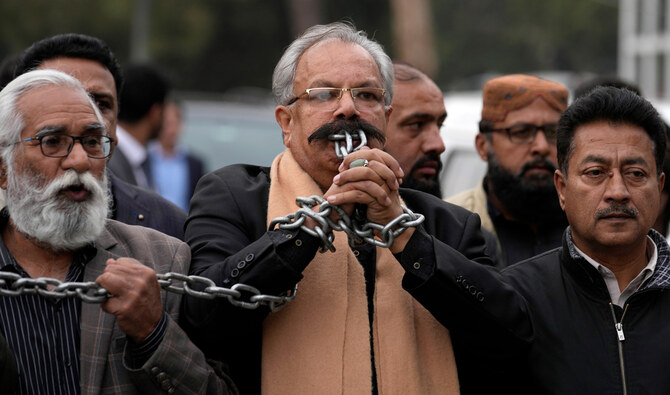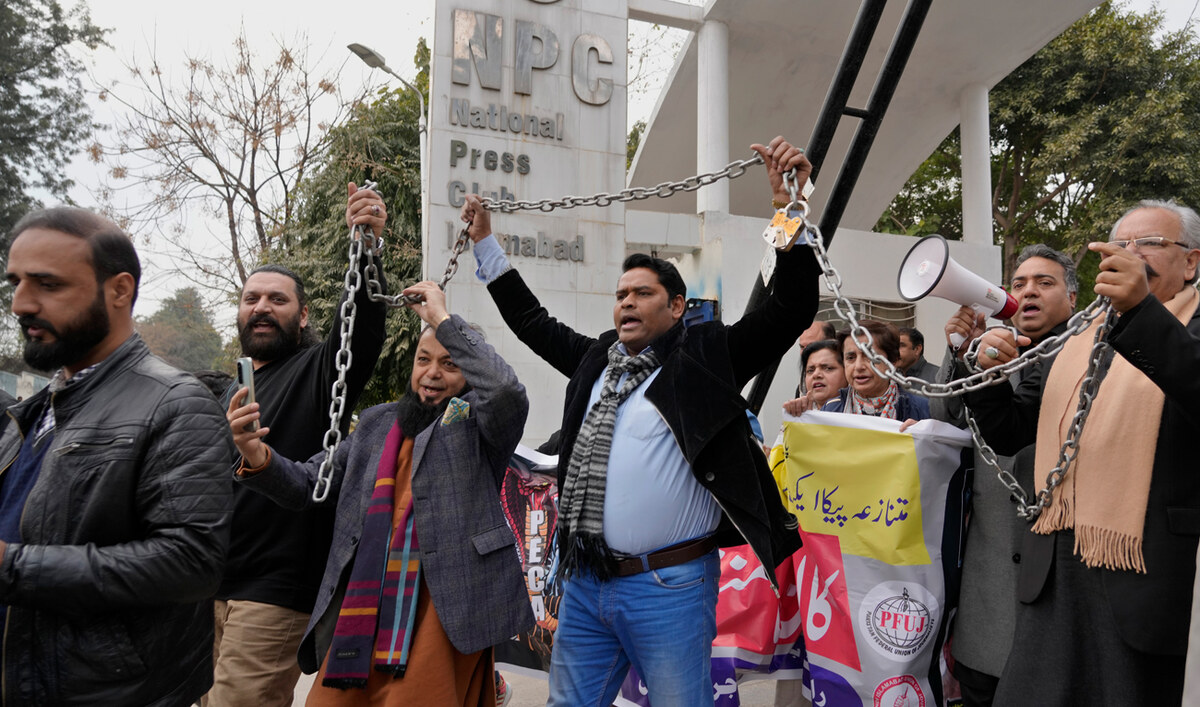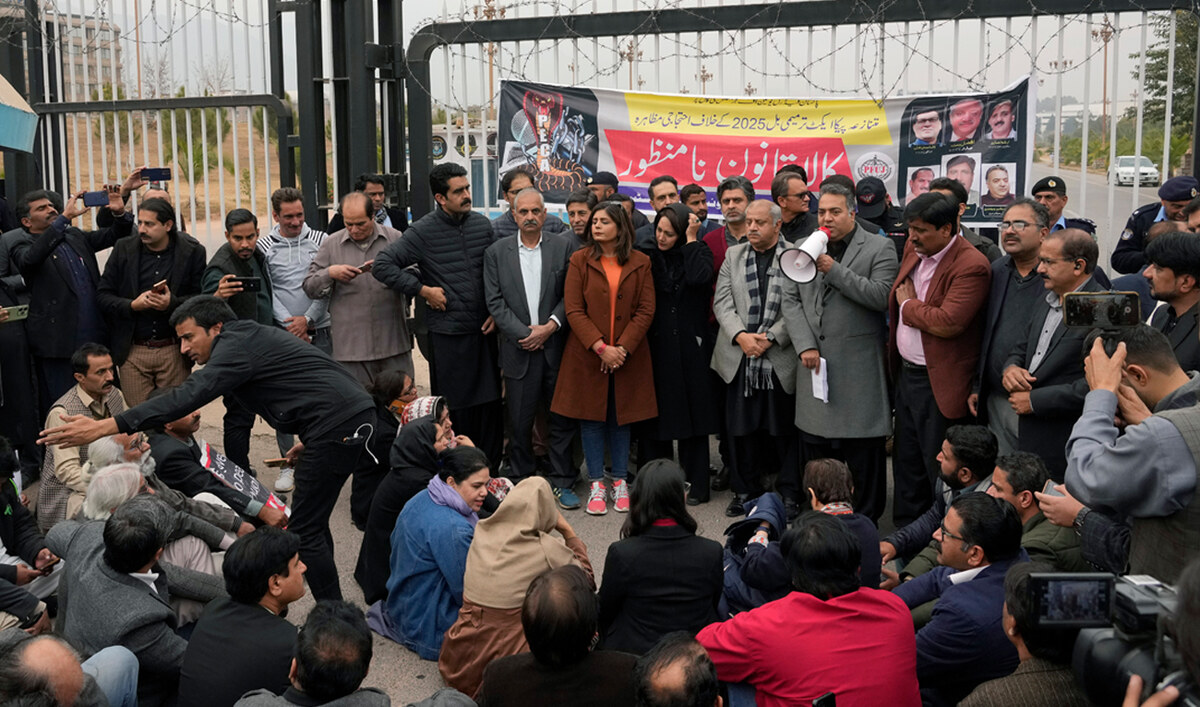KARACHI: Rubina Hidayatullah has seen it all since she moved to Pakistan from neighboring Afghanistan with her three-year-old son to seek medical treatment for her ailing husband in 2005.
She has lived the difficult life of a refugee in the southern Pakistani city of Karachi. Her husband passed away just a few years after she moved to Pakistan. She raised her three children, two of them born in Pakistan, alone. And she worked long hours as a housemaid to make ends meet.
But nothing could have prepared her for the challenge that came two months ago.
Just as her two sons both got jobs and she hoped she would get a chance at some respite in life, the Pakistan government on Oct. 3 announced a deportation drive against “illegal immigrants,” calling on them to leave voluntarily by Nov. 1 or face forcible expulsion. Although the government says the policy is targeted at all undocumented foreigners, it has disproportionately hit Afghans, who form the largest number of migrants to Pakistan. Since the announcement of the expulsion drive, over 370,000 have returned to their country or been deported.
Many of those who have left have told Arab News they had documents but were fleeing out of fear of arrest and persecution. Many Afghans who have stayed behind have gone underground. Reports of police harassment and arrests have been widespread, while many Afghans say they have been sacked from their jobs or asked by landlords to leave their homes.
“I had one boy working in a restaurant, and the other, at the age of nine, became an apprentice at a workshop,” Hidayatullah, 50, a registered refugee, told Arab News, at her tiny apartment in Karachi. “Since the Afghan [deportation] issue began, both of them have been laid off from their jobs.”
Many Afghans have also lost their homes.
Maulana Ikramullah Khan, another registered refugee, said he had lived in the city’s Ancholi neighborhood for nearly a decade before losing his home and moving to the Sohrab Goth slum.
“The landlord came and asked for my identity card,” Khan said. “When I showed him my [refugee] card, he said, ‘You are an Afghan, and we will not rent the house to Afghans.’ So, he told me that the month was almost ending, and I should vacate the house.”
“It is very distressing for a person to live in one place for 31 years, where you get married, have children, and then, after 31 years, you face a situation where you’re treated in a manner where [you’re told], ‘Leave from here, we will not give you a house, or evacuate our house’.”
The already precarious state of education for refugee children has also been hit.
“Our school has been impacted, we had 300 students enrolled, and now the number has dwindled to less than a hundred,” Syed Mustafa, principal of the Jamal Uddin Afghani School in Karachi, said. “Most landlords are not renting to Afghans now.”
The difficulties come against the background of various government officials, including the prime minister and the army chief, openly saying Afghans were behind terror attacks in Pakistan and a drain on the economy. The interior minister has accused Afghan nationals of being involved in organized crime and responsible for 14 out of 24 suicide attacks in Pakistan this year. Last month Prime Minister Anwaar-ul-Haq Kakar said the move to expel hundreds of thousands of undocumented Afghans was a response to the unwillingness of the Taliban-led administration in Kabul to act against militants using Afghanistan to carry out attacks in Pakistan.
Hajji Abdullah, the chairman of the refugee council in Karachi, confirmed Afghan nationals were losing jobs and facing midnight raids due to the government’s new policy.
“Afghan refugees who were legal and used to work in companies, those companies have now sacked them, saying that the government has urged [Pakistanis] not to employ Afghans,” he told Arab News.
“Unemployed, they are now sitting at home hungry … They should be allowed to resume their work and earn for their children.”
The Sindh home ministry could not be reached for comment despite multiple attempts. A spokesperson for Karachi Police, Abrar Hussain Baloch, said the state was only fulfilling its responsibility to “act against Illegal immigrants.”
He denied “any sort of action which may cause harm or affect the lives of legal refugees.”
In the meantime, refugees like Hidayatullah continue to live in uncertainty and fear.
“I have neither gone to Afghanistan, nor can I go there,” she said when asked if she would be leaving for Afghanistan because of the difficulties created by the expulsion drive.
“I don’t have anyone whom I would visit … I have no brothers in Afghanistan and no father.”




















